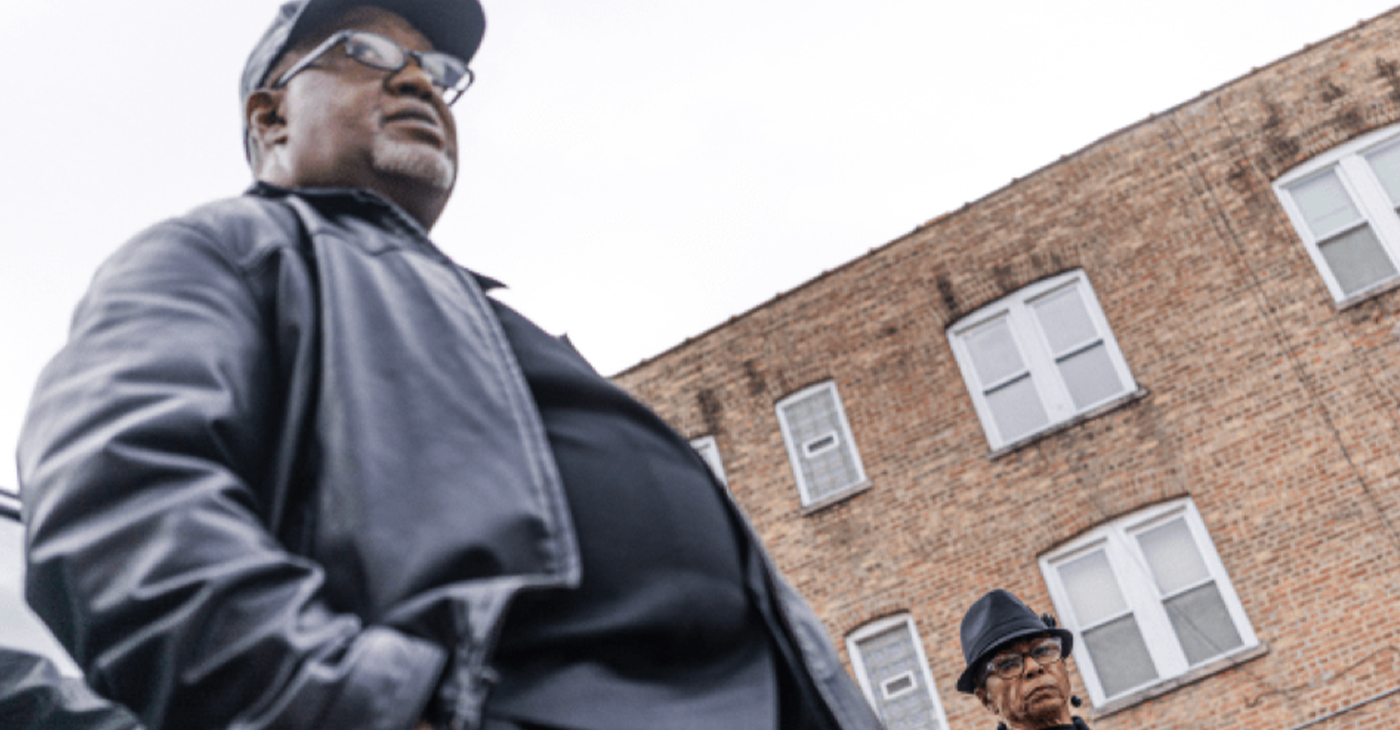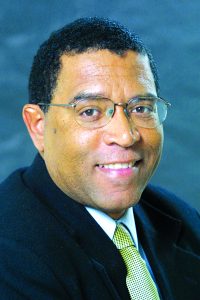#NNPA BlackPress
Black Families Beg Cops to Take Action When Loved Ones Go Missing
THE SACRAMENTO OBSERVER — At least three complaints alleged that officers at stations where they tried to file a report in-person told them to instead call 911, even though Illinois law clearly states police cannot refuse in-person reports. One father, who asked to remain anonymous, told City Bureau and the Invisible Institute that police would not allow him to report his 17-year-old daughter missing in 2020 because police told him she was an adult and could move freely in the world.
The post Black Families Beg Cops to Take Action When Loved Ones Go Missing first appeared on BlackPressUSA.

By Trina Reynolds-Tyler, Invisible Institute, and Sarah Conway, City Bureau | Word In Black | The Sacramento Observer
This story is part three of Chicago Missing Persons, a two-year investigation by City Bureau and Invisible Institute, two Chicago-based nonprofit journalism organizations, into how Chicago police handle missing person cases reveals the disproportionate impact on Black women and girls, how police have mistreated family members or delayed cases, and how poor police data is making the problem harder to solve.
(WIB) – Some say it’s simply a mother’s intuition: a lump in the throat or a throb to the heart that warns their child is in danger, even when police suggest otherwise.
It guided Latonya Moore when her 26-year-old daughter Shantieya Smith still wasn’t home as night fell on May 28, 2018. It was out of character for her to not reach out, especially on a school night. Moore worried officers would be dismissive if she called in, so her cousin suggested they head to a nearby 10th District police station. “I wanted them to see my face so that they could understand my concern was real,” remembers Moore.
Read More: Why Don’t Police Find Missing Black Folks?
It guided her even as the officer at the front desk told her not to worry, she remembers. Maybe she is with a boyfriend, the officer suggested. It wasn’t uncommon for young women like Smith to run off with a man. “Give it 48 hours” before filing the report, Moore remembers the officer saying.
But Moore didn’t want to give it 48 hours. She thought about 15-year-old Sadaria Davis, another girl who had gone missing in the neighborhood that spring, who later was found decomposed in a trash-strewn abandoned building. It was the latest in a spate of missing women and girls; in fact, the whole neighborhood was on edge.
Moore’s cousin, part of their tight-knit family group, was adamant the officer accept the report and said they would not leave the station without one. They mentioned Smith’s bipolar disorder, which — unknown to the family at the time — meant police could have immediately characterized her case as “at-risk” and started an investigation.
Finally, officers told Moore her request was accepted.
“If she shows up, give us a call,” officers told Moore. She wouldn’t hear from them for the next four days.
RELATED: Black Children Deserve to Be Children
In Illinois, it’s against state law for any law enforcement official to refuse an in-person missing person report on any grounds, regardless of the missing person’s age, affiliation, lifestyle, or amount of time missing. Nowadays, the first 24 to 48 hours after someone goes missing are widely understood as the most vital part of a police investigation — critical to finding leads, collecting evidence and, in some cases, saving lives. The Chicago Police Department even collaborated with the network A&E on a show called “The First 48: Missing Persons,” showing (as research confirms) those crucial early hours can make or break a missing person case.
And yet, Moore clearly remembers an officer telling her to wait before filing a missing person report. City Bureau and the Invisible Institute spoke with multiple people who had similar experiences. In an analysis of police complaint records from 2011 to 2015, City Bureau and Invisible Institute found 17 complaints against officers for allegedly refusing to file missing person reports. None of the officers named in these complaints were disciplined. Black women made a majority of the complaints against officers, often when attempting to report their children missing.
Additionally, at least three complaints alleged that officers at stations where they tried to file a report in-person told them to instead call 911, even though Illinois law clearly states police cannot refuse in-person reports. One father, who asked to remain anonymous, told City Bureau and the Invisible Institute that police would not allow him to report his 17-year-old daughter missing in 2020 because police told him she was an adult and could move freely in the world.
“They were saying you have to wait 48 hours before you can actually report the person missing,” says the Rev. Robin Hood, who remembers hearing this from police officers starting in the 1990s. The West Side activist preacher has raised awareness and led community searches for missing Black girls and women on the West Side for decades.
In response to this accusation, police spokesperson Thomas Ahern wrote in an email statement: “The Chicago Police Department takes each missing person report seriously and investigates every one consistently. Under state law, CPD is required to take every missing person report regardless of how long the person has been absent or who is submitting the report.”
In some cases, families believe if police had acted more urgently, their loved ones might still be alive. While it’s impossible to prove a hypothetical, these heartbreaking stories demonstrate how important urgent police response can be.
On July 24, 2016, Shante Bohanan called her sister and said she was being held against her will. Bohanan’s boyfriend had recently died in a shooting, and the 20-year-old had gone to her boyfriend’s family’s house in order to grieve, family members told City Bureau and the Invisible Institute. A police document stated that during the phone call, Bohanan told her sister that she had a “gun held to her head.”

Tammy Pittman holds a portrait of her daughter, Shante Bonahan. Pittman says police asked her to wait 24 hours before reporting her daughter missing in 2016, even though her daughter had called in distress. (Photo: Natasha Moustache)
Bohanan’s mother, Tammy Pittman, says she went to the boyfriend’s house herself the same evening, but residents of the home said Bohanan had already left. Worried for her daughter’s safety, she attempted to report her missing.
Instead, officers suggested Bohanan had run away, and urged Pittman to wait another 24 hours before reporting her daughter missing, against state law and their own policy. Police did not search the boyfriend’s home until the next evening, and they found nothing.
Three days after her mother first tried to file a missing person report, Bohanan’s naked body was found inside a black plastic garbage bag on 92nd Street in Burnside. As of 2023, Pittman says she hasn’t heard from detectives in five years.
Ultimately, whether it’s a refused report, confusion about whether or not they can file a report, or a delay in investigation, the process leaves families in limbo as leads are lost and cases go cold.
Tammy Pittman talks about her experience with police after filing a missing person report for her daughter Shante Bohanan.
“The police failed me,” Pittman says. “Even though she’s dead, she’s gone, I don’t have no answers and that’s what hurts most of all. It hurts more than anything.”
CPD media affairs did not respond to a request for comment.
Editor’s Note: In this article, anonymous sources have their names and credentials checked and double-checked by reporters and editors, though their identities are not revealed to the public. Sources may be granted anonymity if they provide unique and critical perspective or information and are at risk for personal or professional harm if their identities are revealed.
This story is part of the Chicago Missing Persons project by City Bureau and Invisible Institute, two Chicago-based nonprofit journalism organizations. Read the full investigation and see resources for families at chicagomissingpersons.com
The post Black Families Beg Cops to Take Action When Loved Ones Go Missing first appeared on BlackPressUSA.
#NNPA BlackPress
Chavis and Bryant Lead Charge as Target Boycott Grows
BLACKPRESSUSA NEWSWIRE — Surrounded by civil rights leaders, economists, educators, and activists, Bryant declared the Black community’s power to hold corporations accountable for broken promises.

By Stacy M. Brown
BlackPressUSA.com Senior National Correspondent
Calling for continued economic action and community solidarity, Dr. Jamal H. Bryant launched the second phase of the national boycott against retail giant Target this week at New Birth Missionary Baptist Church in Atlanta. Surrounded by civil rights leaders, economists, educators, and activists, Bryant declared the Black community’s power to hold corporations accountable for broken promises. “They said they were going to invest in Black communities. They said it — not us,” Bryant told the packed sanctuary. “Now they want to break those promises quietly. That ends tonight.” The town hall marked the conclusion of Bryant’s 40-day “Target fast,” initiated on March 3 after Target pulled back its Diversity, Equity, and Inclusion (DEI) commitments. Among those was a public pledge to spend $2 billion with Black-owned businesses by 2025—a pledge Bryant said was made voluntarily in the wake of George Floyd’s murder in 2020.“No company would dare do to the Jewish or Asian communities what they’ve done to us,” Bryant said. “They think they can get away with it. But not this time.”
The evening featured voices from national movements, including civil rights icon and National Newspaper Publishers Association (NNPA) President & CEO Dr. Benjamin F. Chavis Jr., who reinforced the need for sustained consciousness and collective media engagement. The NNPA is the trade association of the 250 African American newspapers and media companies known as The Black Press of America. “On the front page of all of our papers this week will be the announcement that the boycott continues all over the United States,” said Chavis. “I would hope that everyone would subscribe to a Black newspaper, a Black-owned newspaper, subscribe to an economic development program — because the consciousness that we need has to be constantly fed.” Chavis warned against the bombardment of negativity and urged the community to stay engaged beyond single events. “You can come to an event and get that consciousness and then lose it tomorrow,” he said. “We’re bombarded with all of the disgust and hopelessness. But I believe that starting tonight, going forward, we should be more conscious about how we help one another.”
He added, “We can attain and gain a lot more ground even during this period if we turn to each other rather than turning on each other.” Other speakers included Tamika Mallory, Dr. David Johns, Dr. Rashad Richey, educator Dr. Karri Bryant, and U.S. Black Chambers President Ron Busby. Each speaker echoed Bryant’s demand that economic protests be paired with reinvestment in Black businesses and communities. “We are the moral consciousness of this country,” Bryant said. “When we move, the whole nation moves.” Sixteen-year-old William Moore Jr., the youngest attendee, captured the crowd with a challenge to reach younger generations through social media and direct engagement. “If we want to grow this movement, we have to push this narrative in a way that connects,” he said.
Dr. Johns stressed reclaiming cultural identity and resisting systems designed to keep communities uninformed and divided. “We don’t need validation from corporations. We need to teach our children who they are and support each other with love,” he said. Busby directed attendees to platforms like ByBlack.us, a digital directory of over 150,000 Black-owned businesses, encouraging them to shift their dollars from corporations like Target to Black enterprises. Bryant closed by urging the audience to register at targetfast.org, which will soon be renamed to reflect the expanding boycott movement. “They played on our sympathies in 2020. But now we know better,” Bryant said. “And now, we move.”
#NNPA BlackPress
The Department of Education is Collecting Delinquent Student Loan Debt
BLACKPRESSUSA NEWSWIRE — the Department of Education will withhold money from tax refunds and Social Security benefits, garnish federal employee wages, and withhold federal pensions from people who have defaulted on their student loan debt.

By April Ryan
Trump Targets Wages for Forgiven Student Debt
The Department of Education, which the Trump administration is working to abolish, will now serve as the collection agency for delinquent student loan debt for 5.3 million people who the administration says are delinquent and owe at least a year’s worth of student loan payments. “It is a liability to taxpayers,” says White House Press Secretary Karoline Leavitt at Tuesday’s White House Press briefing. She also emphasized the student loan federal government portfolio is “worth nearly $1.6 trillion.” The Trump administration says borrowers must repay their loans, and those in “default will face involuntary collections.” Next month, the Department of Education will withhold money from tax refunds and Social Security benefits, garnish federal employee wages, and withhold federal pensions from people who have defaulted on their student loan debt. Leavitt says “we can not “kick the can down the road” any longer.”
Much of this delinquent debt is said to have resulted from the grace period the Biden administration gave for student loan repayment. The grace period initially was set for 12 months but extended into three years, ending September 30, 2024. The Trump administration will begin collecting the delinquent payments starting May 5. Dr. Walter M. Kimbrough, president of Talladega College, told Black Press USA, “We can have that conversation about people paying their loans as long as we talk about the broader income inequality. Put everything on the table, put it on the table, and we can have a conversation.” Kimbrough asserts, “The big picture is that Black people have a fraction of wealth of white so you’re… already starting with a gap and then when you look at higher education, for example, no one talks about Black G.I.’s that didn’t get the G.I. Bill. A lot of people go to school and build wealth for their family…Black people have a fraction of wealth, so you already start with a wide gap.”
According to the Education Data Initiative, https://educationdata.org/average-time-to-repay-student-loans It takes the average borrower 20 years to pay their student loan debt. It also highlights how some professional graduates take over 45 years to repay student loans. A high-profile example of the timeline of student loan repayment is the former president and former First Lady Barack and Michelle Obama, who paid off their student loans by 2005 while in their 40s. On a related note, then-president Joe Biden spent much time haggling with progressives and Democratic leaders like Senators Elizabeth Warren and Chuck Schumer on Capitol Hill about whether and how student loan forgiveness would even happen.
#NNPA BlackPress
VIDEO: The Rev. Dr. Benjamin F. Chavis, Jr. at United Nations Permanent Forum on People of African Descent
https://youtu.be/Uy_BMKVtRVQ Excellencies: With all protocol noted and respected, I am speaking today on behalf of the Black Press of America and on behalf of the Press of People of African Descent throughout the world. I thank the Proctor Conference that helped to ensure our presence here at the Fourth Session of the […]

Excellencies:
-

 Activism4 weeks ago
Activism4 weeks agoOakland Post Endorses Barbara Lee
-

 Activism3 weeks ago
Activism3 weeks agoOakland Post: Week of April 2 – 8, 2025
-

 #NNPA BlackPress3 weeks ago
#NNPA BlackPress3 weeks agoTrump Profits, Black America Pays the Price
-

 Activism2 weeks ago
Activism2 weeks agoOakland Post: Week of April 9 – 15, 2025
-

 #NNPA BlackPress3 weeks ago
#NNPA BlackPress3 weeks agoHarriet Tubman Scrubbed; DEI Dismantled
-

 #NNPA BlackPress3 weeks ago
#NNPA BlackPress3 weeks agoTrump Targets a Slavery Removal from the National Museum of African-American History and Culture
-

 #NNPA BlackPress3 weeks ago
#NNPA BlackPress3 weeks agoLawmakers Greenlight Reparations Study for Descendants of Enslaved Marylanders
-

 #NNPA BlackPress3 weeks ago
#NNPA BlackPress3 weeks agoNew York Stands Firm Against Trump Administration’s Order to Abandon Diversity in Schools




















































